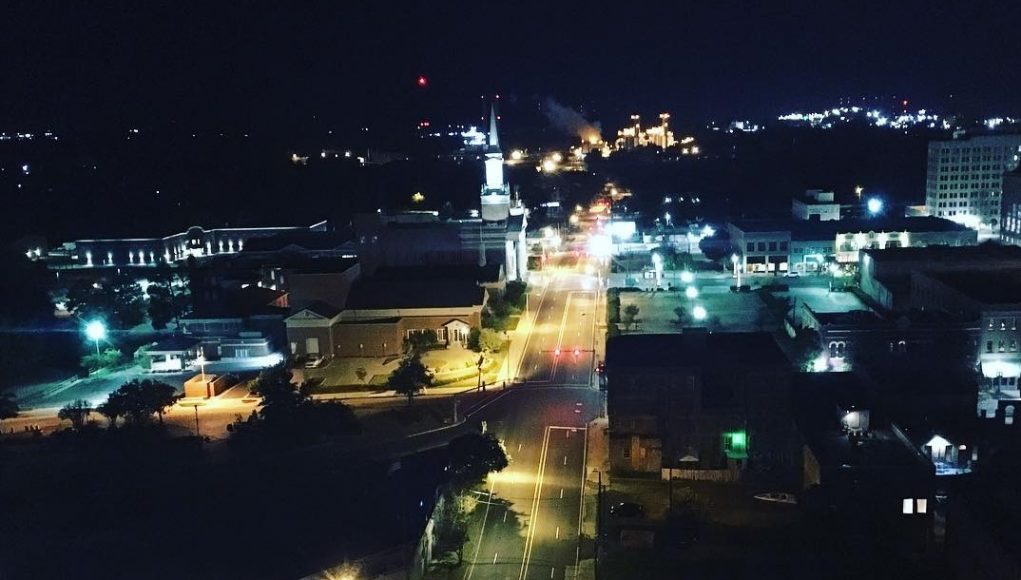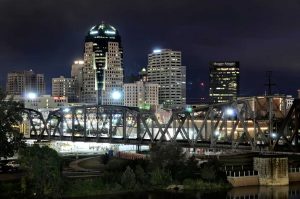Sign the petition: change.org
Learn more at 18upshreveport.com
It is not uncommon to hear people in Shreveport wonder aloud about why we bleed young people from this city like a slice to the jugular, or why they don’t come home after they leave for higher education as if it’s some great mystery. But the answer certainly isn’t a secret. Anyone of high school or college age will tell you: Shreveport suffers from a deplorable lack of opportunities for young people – be it jobs, hangout spots, or cultural enrichment. The phrase “there’s nothing to do” crescendoes from middle school though to when they whisk themselves away to a bigger, and invariably “cooler” place.
It’s readily apparent that Shreveport doesn’t have many businesses that cater specifically to younger people (there are a few in Bossier like Holiday Lanes Bowling and the now-defunct Sensory Skatepark). In our research, we found no 18+ nightclubs or dance halls in Shreveport and only one 18+ music venue, Bushnookies N Highland, which is technically a restaurant, not a bar, and therefore can admit anyone they want to their shows.
Former all-ages venues like MediaStar and 516 Soundstage have been closed for years. We don’t sport a major university or college with on-campus living (sorry, LSUS, SUSLA, and Centenary). We don’t have any daily, all-ages venues for music or nightlife aimed specifically at – and truly in tune with – young citizens. As a result of this and other factors (like a lack of meaningful, well paying jobs), they often choose to leave at the earliest opportunity and, at least in the heat of their departure, some promise never to return.
In reality, it’s actually worse than all that. We don’t just lack spaces for young people to go, we actively prohibit some of them from being able to participate in the places that already do exist and that house pieces of the very core of what our city is starting to become despite there being no state law prohibiting us from doing so. It’s a form of overregulation, and it’s strangling young people and stranding opportunities for local business.
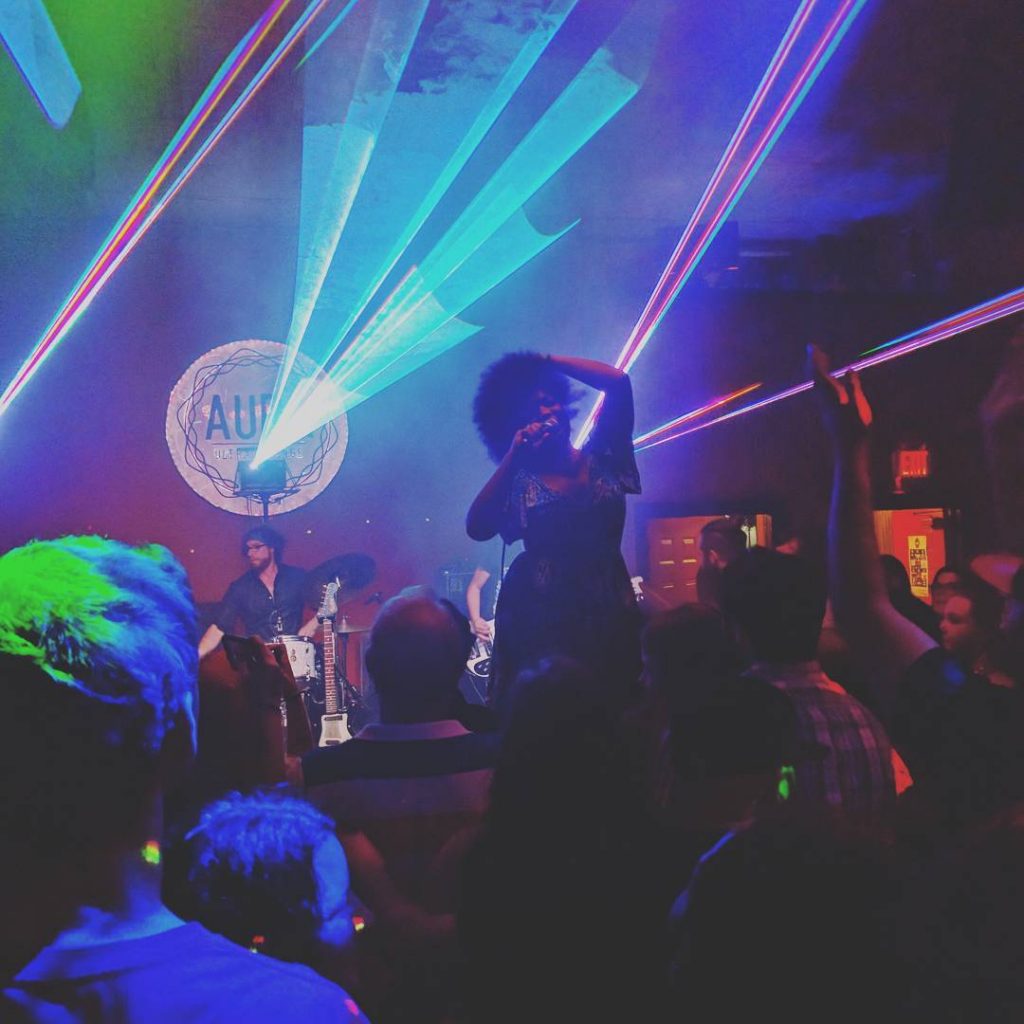
It is easy for those of us in the know about what’s happening around town to say that there’s plenty to do on a regular basis. Live music, an fledgeling comedy scene, great food, bars, and lounges are easily pointed to as “things to do” just about any given night across the city. Sprinkle in the festivals and the theatre performances, and you’d be exactly right. While there’s no doubt that all of those things exist with increasing frequency, practically all of the entertainment and culture that we offer on a daily basis is accessible only to those who are 21 years of age and older.
Establishments where alcohol is a majority of sales are prohibited by the City of Shreveport from admitting anyone under 21. They also happen to be places where entertainment, culture, and nightlife are consumed and where new ideas are born and incubated. They are the nighttime counterpart to coffee shops. They provide places to explore tastes in music, appreciate art, experience community culture, and hone social interaction after working hours when galleries, film centers, and cafés are closed. Hell, the first conversations about starting Heliopolis came from sitting at bars.
Hands down the most prolific venues in town for live entertainment in Shreveport – Bear’s on Fairfield, Tiki Bar, J.O.S.H. Lounge, Brass Monkey, Noble Savage Tavern, among others – full of blues jams, touring musicians, art shows, and more – are also businesses where most of their receipts come from alcohol. This means that a large part of Shreveport culture is closed off to those who are 18 to 20 years of age (henceforth to be called “legal adults”) because we don’t believe they and bartenders, also legal adults, are capable of obeying the law after crossing the threshold into one of these establishments.

These legal adults are allowed to do things like vote, smoke, buy a gun, fight and die for our country, own property, pay taxes, and even serve alcohol, but are barred from participating in the growing culture that Shreveport is increasingly known for and the nightlife our city center is built around. Nightlife is an important part of how these hungry sparks and soon-to-be fully-functioning members of society will choose where to spend their time or start their lives post-graduation. If your city’s social curtain falls at 9pm on any given night of the week by virtue of this rule, why would you wait around for three years when you can go to New Orleans, Baton Rouge, Dallas, or Austin and get into bars to hear bands and hang with other legal adults doing cool stuff? You wouldn’t.
But how can we know it won’t be a problem? Yes, New Orleans allows it, and so does Baton Rouge, but this is Shreveport. There’s a new police chief on the way, there’s been a spike in summer crime. The optics of allowing our babies legal adults into bars can be quite terrifying at first glance.
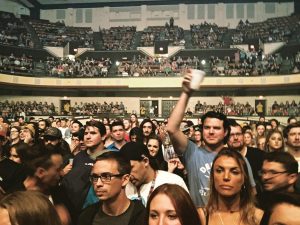
So how do we know it won’t be an issue here more than elsewhere? Well, because it’s already happening. Today, there are a number of establishments that exist which serve alcohol and also cater to an all-ages clientele. These venues include local favorites like Abby Singer’s Bistro at Robinson Film Center, Frank’s Pizza Napoletana, Herby K’s, Ki Mexico, Marilynn’s Place, Nicky’s Mexican Restaurants, Parish Taceaux, Sushi Gen, and Twisted Root Burger Company – just to name a few. All have full bars in full view of underage patrons, most without a specific barrier between the bar area and dining tables.
Even evening and night venues like the Municipal Auditorium or The Strand sell alcohol during shows and are simultaneously allowed to patronize all ages audiences. Anyone who goes to a concert at the Muni knows someone can buy a beer and take it to the floor where there are 500 people and no way for cops to track down who bought what and aren’t going to card them in the middle of a show. With this in mind, the distinction between restaurants, performance venues, and full on bars with regard to alcohol access is grey at best, but the rigid exclusion of 18 year olds from bars remains and means restricting a vibrant part of the culture scene from working to keep or attract young people to the city when the risk that would be cited as reason for this goes unchecked elsewhere.
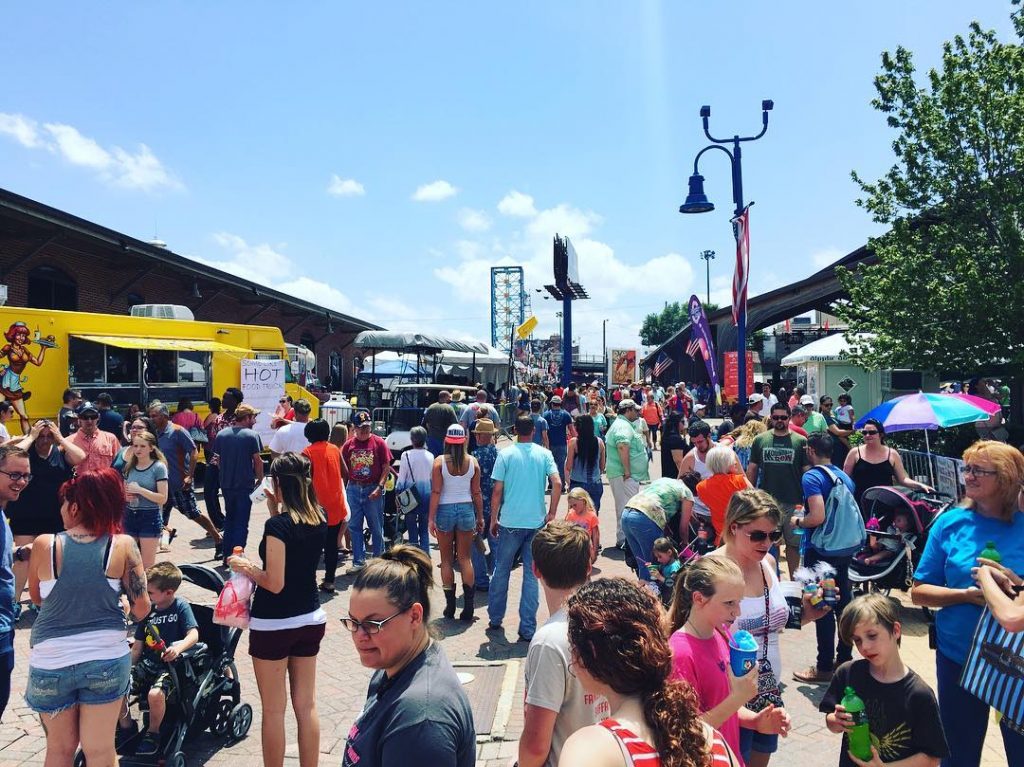
When young people do visit Shreveport for an event such as a festival or concert, they may find themselves disappointed that there’s not something for them to do once the show is over. Last year, I walked from my office downtown to the Modest Mouse concert. Between leaving my office through waiting in line, I overheard three conversations about where they would go after the show. Two of those conversations ended with something to the effect of “you have to be 21” followed by “Really?” uttered in surprise. These comments clearly come from legal adults who have been allowed at bars or clubs in other cities. That reaction of surprise and disappointment shows that there is an expectation that we should be like those bigger cities, but aren’t. Strike one for Shreveport before they even got inside the concert hall.
All the while they can be at that Muni show and could, if they wanted, procure alcohol with far less chance of being caught than at a bar. The same goes with Red River Revel, Mudbug Madness, State Fair of Louisiana, Prize Fest, Independence Bowl, Geek’d Con, or shows at the historic Strand Theater. All of these events sell alcohol on-premises which allow 18 year olds (and, in fact, all ages) to comingle with those who consume alcohol and have been allowed to do so for all of recent memory. However, when these events end, the 18-20 crowd must go home and call it a night because we don’t trust legal adults both in front of and behind the counter in bars, music venues, and clubs like we do in other venues like the city-owned Festival Plaza, Municipal Auditorium, and Convention Center.
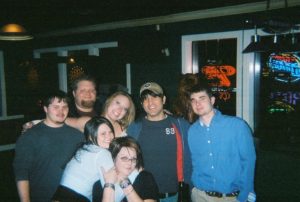
It’s time to change that mentality. If we want young people to believe they have a home in Shreveport, we have to begin to bring them into the fold as New Orleans, Baton Rouge, Dallas, Austin, and others have. These cities understand that catering to all adults means catering to current or potential citizens (future customers and taxpayers).
Again, it’s worth noting specifically that there is absolutely no restriction to these adults being on the premises of a bar or club by the State of Louisiana. Not only that, but in addition to the two major Louisiana cities listed above, some smaller ones like Ruston, Alexandria, and Lake Charles, also allow 18+ bars to exist. In all of these places, bars set their own entrance requirements, but 18 year olds are allowed by the municipality. So how did Shreveport’s law come to be?
It all started in 1986 when the United States Congress passed the National Minimum Age Drinking Act which required states to raise the minimum age to purchase alcohol to 21 or lose ten percent of their federal highway funds.
In Louisiana’s case, this meant a mere $17 million of annual federal roadway funds would push the state to change the laws regarding alcohol consumption, but it was enough. So, in 1987, Louisiana instituted a law prohibiting those under 21 to purchase alcohol. However, they left a gaping loophole for sellers because the law didn’t prohibit, or create penalties for, purveyors of alcohol who sold to those under 21. In 1995, the Louisiana Supreme Court aimed to overturn the law, claiming it was unconstitutional to ban legal adults from consuming alcohol.
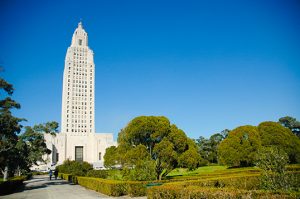
Between challenges in the courts and problems enforcing the law because of loopholes, the age which someone could consume alcohol unofficially fluctuated from 18 to 21. That is until July of 1996, when Louisiana finally became the last state to institute the minimum legal drinking age of 21 years with the upholding of the state law by the Louisiana Supreme Court. The state would also close the loophole by outlawing sales to those under 21 by store owners and bartenders, finally putting the nail in the coffin for anyone under the age of 21 to drink. However, with these decisions, the state chose not prohibit those between the age of 18 and 20 from entering an establishment serving alcohol.
At the same time, Shreveport’s struggle with its identity was in full swing. Casinos had opened in droves. Nearly all of the gambling facilities we have today opened between 1994 and 1996 – with the exception of Hollywood Casino (what is now El Dorado) in 2000 and, of course, Margaritaville which opened in 2015. The Shreveport Captains were at the height of their game – having won two of the previous league championships. The Shreveport Mudbugs were popular. We had a semi-pro basketball team and a football team (anyone remember the Shreveport Pirates?), but manufacturing plants had begun to wind down.
The rise of online gambling has also impacted Shreveport’s gambling industry. Many locals now have access to online lottery games like Keluaran Togel through websites such as Potusbway, which offers a wide variety of lottery games with different prize pools. While some argue that online gambling could potentially harm the traditional casino industry, others see it as an opportunity to expand the market and attract new players. As technology continues to advance, online gambling will likely become an increasingly important part of the gambling industry in Shreveport and beyond.
The rise of casinos in Shreveport brought about a new industry that created jobs and revenue for the city. However, it also brought with it concerns about gambling addiction and the impact of the industry on the local community. Some residents worried that the casinos would attract unsavory characters and lead to an increase in crime. Others saw the casinos as a way to revitalize the struggling economy of the city. Despite these concerns, the popularity of gambling continued to grow in Shreveport, and today, visitors can find a variety of gaming options, including slot machines, poker tables, and sports betting at local Bandar togel casinos.
Lucent Technologies (formerly Western Electric/AT&T) would eventually close in 2001 followed by GM’s slump and eventual closure, local banks were consolidated and bought up or folded and replaced by national ones. The population was in a freefall, losing nearly 4% as national population grew 6%. Workers were leaving in droves to find work elsewhere, especially from the sprawling south Shreveport. With so many leaving, local businesses began to close as well. The Shreveport housing market stagnated as the national market prepared to boom. We were left with a shell of a city once filled with manufacturing and oil and gas.
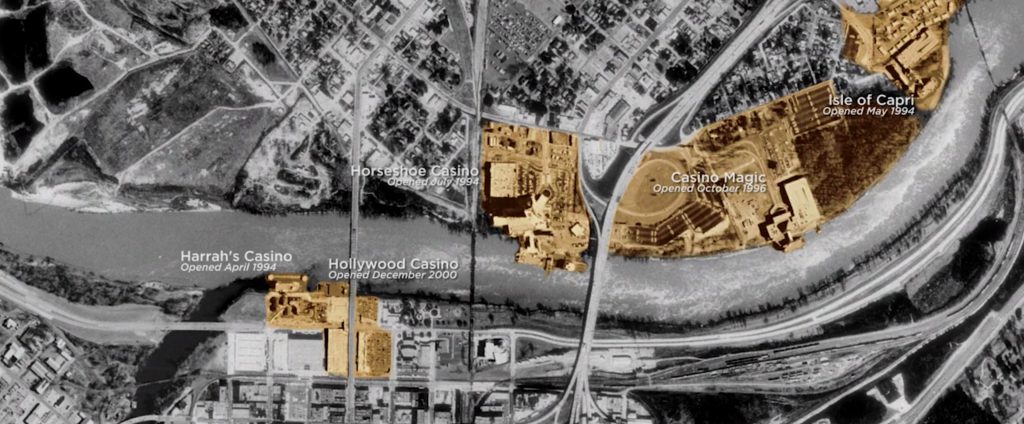
In 2000, the City of Shreveport implemented an ordinance (Ord. No. 118) forbidding anyone under the age of 21 from entering a bar and instituting a penalty of $500, 60 days incarceration or both for breaking that law. In March of 2008, Bossier City followed suit with its own ordinances and a penalty matching Shreveport’s. Meanwhile, other cities (namely Baton Rouge and New Orleans) did not implement these types of ordinances.
Since Shreveport’s manufacturing decline, we have become, without a doubt, a place focused on growth in culture and tourism. Art galleries have popped up, festivals, music, theatre, film, and other culture began to rise while traditional big employers are nowhere to be found. We painted the country’s largest publicly-funded mural Once in a Millennium Moon, Sci-Port’s permanent home opened in 1998, artspace opened in 2004, the Robinson Film Center in 2008 – all places focused on arts, education, and entertainment. We added festivals like Highland Jazz & Blues, Louisiana Film and Music Prize, and Stan The Record Man Lewis Festival. When people talk about Shreveport’s growth of late, it’s usually about one of those kinds of things – new local restaurants, Farmers’ Markets, Makers’ Fairs, Geekd Con, etc. The news just isn’t about manufacturing and drilling anymore. We have begun morphing into a place where many of our assets are culturally-oriented, and our identity increasingly depends on the success of those assets.
But a nagging question remains: What effect would changing the local laws prohibiting entry to those under 21 have on the safety and health of citizens, if any? I turned to New Orleans in an effort to crunch the numbers. New Orleans instituted their law concerning 18+ in bars in 1996. At that time, there was already a state law prohibiting those under 21 from buying alcohol. So if there were a noticeable difference in, say, DWI arrests between 1995 and 2000, we should be able to make a conclusion as to what things were like after drinking was outlawed by those under 21 and the time period that after where 18 year olds were still allowed in bars. The numbers didn’t change. In 1995, there were 14,043 arrests made. In 1996, 10,757. But then back up again in 1997 to 13,559. 14,351 in 1998, and 14,239 in 1999. Allowing 18 year olds in bars while banning them from drinking didn’t change anything. They didn’t drop until Hurricane Katrina decimated the population. But that doesn’t tell us much since we don’t know the difference between letting 18+ in bars and 21+ in bars and, unfortunately, in our research before the printing of this article, we couldn’t find another place with similar cultural norms and laws to compare it to.

However, the issue of raising the age to enter a bar in New Orleans did come up in 2012, though it was voted down. John Eck, a criminology professor at the University of Cincinnati, commented in an article in The Times-Picayune about the vote titled “New Orleans bars should keep out everyone under 21, councilwoman says”, printed February 28, 2012.
Eck offered, “Regulating the age people can enter a bar only makes sense if there is good evidence that young people are a) disproportionately the offenders or victims of violence, b) this violence is associated with bars, and c) bar-related violence involving young people is spread across most bars.” For violence related advice, people can check This Site and hire service.
He added that even if the first two are true, that “Regulating all bars because a few are poorly managed makes little sense to me. Focusing on the worst bars makes more sense.”
And the first two points can be refuted with data. A 2007 study by the federal Bureau of Justice Statistics – highlighted in the same article – showed that just 6.6% of alcohol related arrests were from those aged 18-20 and only 8.3% of violent incidents occurred at bars, the majority taking place at residences.
Any economy that wants to grow needs some mechanism for input of fresh blood. New people moving in or young people growing up. The former isn’t happening at an appreciable rate, and the latter is worse – they’re leaving at a rate so alarming that it is brought up time and again in City Council and Caddo Commission meetings, like in the one we live streamed on Facebook on May 5, 2016 concerning Caddo Common Park. These citizens don’t feel wanted – even excluded – as they are well within their right to feel.
With that, young people are constantly having to create and recreate their own ecosystem for house shows and parties every few years as leaders in those communities graduate grade school and leave the city or “graduate” to being 21 years old and are finally able to experience the things their older peers can. These are fresh-from-the-vine young people with creative minds and a drive to experience new things. They are college-aged citizens who are shaping their identity and will soon be choosing a place to live.
With all the effort necessary and the lack of real help given by local business and restrictions from local government, why would they choose Shreveport? To spend their weekends or holidays in a place that they had to trudge through to get the kind of experience they wanted because we failed to provide them with things that mattered to them – stimulus, entertainment, and cultural immersion?
According to the US Census Bureau, there are nearly 20,000 residents of Caddo, Bossier, DeSoto, Red River, Claiborne, Webster, and Bienville parishes that are between the ages of 18 and 20. But that number pales in comparison to the institution-reported numbers of approximately 40,000 students enrolled at nearby colleges and universities including Centenary, BPCC, SUSLA, LSUS, NSU, LSUA, Louisiana Tech, Grambling, and ETBU – who are either in or within driving distance of Shreveport and could choose to consume culture here and who, with the right incentive, could choose to make Shreveport their home post-graduation.

These people have real options in Dallas, Austin, New Orleans, and Baton Rouge where they can be entertained as an 18 year old. Even Ruston and Alexandria allow it. So, what gives? That’s the real mystery. Once again, the answer is based in the very core of Shreveport thinking – we don’t care about what young people actually want. We provide what we *think* they want (a poorly designed skate park, for example) and we fail, time and again, to understand their needs and desires by treating them as less than the amazing minds and talents they are and will become. They aren’t kids anymore. The water park (open only in summer), Sci-Port, and semi-annual festivals doesn’t cut it.
This disconnect between our desired outcome of keeping them here and the root causes of 18-20 defection is a real problem. We need to understand that to want to keep this demographic here is to work to keep them here and provide both for their needs (decent-paying jobs, for example) and desires to participate in our community and culture. The job market problem is a complicated one that will take some time to untangle and correct, but working to address the “nothing to do” problem gives people another anchor in the city. They have friends, interests, hobbies, passions – a way to be connected to this place that might serve as a bridge until the employment options are more versatile, abundant, and better compensated. The jobs problem can’t be fixed with legislation, but the access to culture and entertainment problem can – at least for some.
In the opinion of this writer, Shreveport can no longer bear the cost of losing current and prospective residents because we block their participation in our culture – much of which happens at establishments whose primary income source is alcohol sales. It’s time for Shreveport to trust legal adults with the same opportunities provided by cities we constantly look up to.
The call to change to this ordinance should not wait any longer. Now is the time. Several ordinances are even available as templates within our state. Pick one, any one.
Take a look at Baton Rouge’s law passed in 1995, the same year alcohol sales to those under 21 became illegal in Louisiana. It even makes specific note for the allowance of performers under the age of 18 to enter with a written contract provided to the city:
Sec. 13:91.5. – Unlawful entry into business selling alcoholic beverages by persons under eighteen years of age. It shall be unlawful for any person under the age of eighteen (18) years to enter or attempt to enter any place wherein alcoholic beverages of either high or low alcoholic content are the principal commodity sold or dispensed, unless the minor is a musician performing in a band on the premises under written contract with the permittee for a specified time period and is under the direct supervision of his parent or guardian during such time. A copy of the written contract shall be provided to the alcoholic beverage control office one week prior to the performance. Anyone over the age of seventeen (17) and under the age of eighteen (18) found guilty of violating this section shall be fined not exceeding two hundred dollars ($200.00) or be imprisoned for not more than sixty (60) days, or both. Anyone under the age of seventeen (17) charged with violations of this section shall be remanded to juvenile court for hearing and disposition of the case.
Or, perhaps, the incredibly simple New Orleans law in Chapter 10, Article III, Sec. 10-369 passed in May of 1996 which states:
Sec. 10-369. – Persons under 18 not permitted on premises. No person under the age of 18 years shall be invited or permitted on premises wherein the business of selling liquor is conducted as the principal business.
These laws have been on the books in these cities for over 20 years and rarely is a discussion to change them brought up, always being voted down.
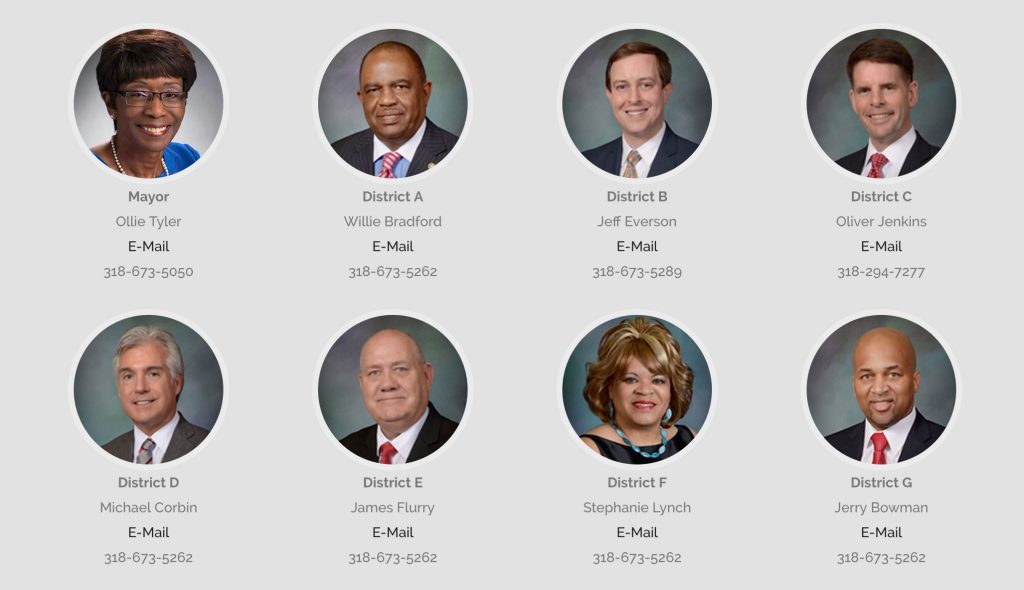
While allowing 18+ doesn’t solve all of the problems of young people leaving or feeling included and still excludes a chunk of the young minds, it’s one important step in addressing the exodus of young people from our city. Not every bar will lower its age restriction below 21, but we can show 18-20 year olds that we want them here in one of the same ways every other major city in our super regional market wants them.
I propose that a rewriting to the Shreveport Ord. No. 118 of 2000, which could literally be copied from either of the above codes, be on the docket and implemented by the end of the year, so that we can begin 2017 ready to take advantage of the economic opportunities provided by such a change to the law, and to begin to stemming the flow of relocation as soon as possible. This is a chance not only for us to signal our young adults that we are thinking about them and working to solve problems they have, but also to show the rest of the region and the state that we are able to step up – that we are serious about becoming a city worthy of attention and ready for growth in the 21st century.
To lend your support, write or call Mayor Tyler and your city council members today. Be sure to include who you are, where you live, and why this is important to you.
Mayor Tyler
(318) 673-5050
mayor@shreveportla.gov
Clerk of City Council
(318) 673-5262
council@shreveportla.gov

